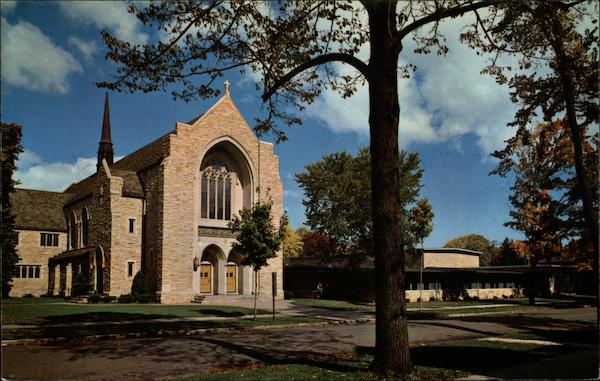Video Ministries – September 2022

Lutheran CORE is always looking for ways to take our ministry to the next level and expand our work of being a Voice for Biblical Truth and a Network for Confessing Lutherans. Our most recent new effort is to expand our video ministry.
For about two years we have been posting on our You Tube channel a new video book review on the first day of every month. Many thanks to the Lutheran pastors and theologians who have been recording these reviews of books of interest and importance.
We are calling our new video ministry CORE Convictions. This new video series is being planned particularly for those who are looking to strengthen and renew their Christian faith. We believe that these videos will be a valuable resource for those who wish to grow in their knowledge of Biblical teaching and Christian living as well as for those who want to know more about how Lutherans understand the Bible. We also want to provide this resource for those who do not have the opportunity or the option of attending a church where the preaching and teaching is Biblical, orthodox, and confessional.
Here is a link to our You Tube channel. In the top row you will find recordings from both sets of videos – in the order in which they were posted, beginning with the most recent. In the second row you will find links to the Playlists for both sets of videos – Book Reviews and CORE Convictions. Here is some more information about our two most recent video book reviews.
VIDEO BOOK REVIEWS
“THANKS BE TO GOD: MEMOIRS OF A PRACTICAL THEOLOGIAN”
Many thanks to NALC pastor Dennis DiMauro for recording a video review of Robert Benne’s book, Thanks Be to God: Memoirs of a Practical Theologian. A link to his review can be found here.
Dr. Benne is the Jordan-Trexler Professor of Religion Emeritus at Roanoke College in Virginia as well as the founder of the college’s Benne Center for Religion and Society. He currently serves as Professor of Christian Ethics at the Institute of Lutheran Theology.
In this book Robert Benne tells the story of his life from a small-town upbringing in an ethnically German area of Nebraska (which Dennis DiMauro describes as like Ozzie and Harriet wearing Luther Rose t-shirts), to the University of Chicago and a few sabbaticals in Germany. At first enthralled with the seminary radicalism of the 1960’s, he soon discovers that this is not for him. He moves from Chicago to Roanoke College in Virginia, where he works to reclaim the Lutheran identity of the college.
In 1982 he founded the college’s Center for Religion and Society, which later was named after him. He worked with Lutheran CORE in a failed attempt to uphold traditional views on marriage in the ELCA and worked with Carl Braaten to start the NALC’s annual theology conference (which later was renamed the Braaten-Benne Lectures), and the younger theologians colloquium, of which Dennis DiMauro is a member.
Dennis DiMauro concludes this enthusiastic recommendation of this book by saying that it is a wonderful memoir that details Dr. Benne’s journey from left-wing activist to iconic Christian ethicist. It demonstrates how one person can fight the good fight for God’s Law and Gospel and make a difference in the world while succeeding in academia against all odds.
DEBATE BETWEEN ERASMUS AND LUTHER
Many thanks to Ethan Zimmerman for his review of the debate between Desiderius Erasmus and Martin Luther on the issue of free will. Ethan is a first-year student at the North American Lutheran Seminary. A link to his review can be found here.
This debate took place in the mid-1520’s as Erasmus stated in his Diatribe that the will is free, while Luther insisted in his Bondage of the Will that the will is bound to Satan or to God. Erasmus’ work is a very methodical, precise piece according to the best tradition of the humanists. Erasmus uses Scripture to support his point because he knows that Scripture is the only authority that Luther will accept. Luther argues his point on the basis of the same passages of Scripture which Erasmus uses, plus some additional passages.
A major difference between the work of these two men is the tone. Erasmus’ writing is very professional, polite, concise, and academic. Luther’s is emotionally charged, vehement, and down to earth. Reading Erasmus is like reading a textbook. Reading Luther is like reading a fiery sermon.
Ethan Zimmerman concludes by saying that reading these two books “will more clearly elucidate both the men of the debate, the issues of the reformation, and shed light on the core tenants of the Lutheran tradition and why we are the way we are today.”
* * * * * * *
CORE CONVICTIONS
We now have four videos posted in our CORE Convictions series –
- “Defending Christian faith and morality without being a nasty jerk or a defensive Bible thumper” by NALC pastor Cathy Ammlung
- “Jesus is the only way to salvation” by Russell Lackey, campus pastor at Grand View University (ELCA)
- “Teaching the faith to children of all ages” by NALC pastor Jim Lehmann
- “What does it mean to be Confessional?” by NALC pastor Jeffray Greene
More videos will be posted as they become available. My August letter from the director contained a summary of and a link to Cathy’s video. Here is a summary of and a link to Russell’s video.
IS JESUS THE ONLY WAY TO SALVATION?
Many thanks to Russell Lackey, senior campus pastor at Grand View University in Des Moines, for his answer to the question, Is Jesus the only way to salvation? A link to his video can be found here.
Some will interpret John 14: 6 as Jesus’ narrowing the way to God. “No one comes to the Father except through Me.” Instead Dr. Lackey points out that here Jesus is providing a way to the Father. “No one comes to the Father.” On our own we would never be able to come to the Father. “Except through Me.” Jesus provides the way. It is as if we were all stuck in a dark room and were unable to find our way out. Someone needs to open the door, provide a light, and show the way.
Pastor Lackey also refers to Revelation 5: 2-5, where the question is asked, “Who is worthy to open the scroll?” Only Jesus is worthy. No one else is able to provide the way.
We will all die. No one can escape that. Jesus alone overcame the grave, opened the way, and provides a way beyond the grave. The best news of all is this – Jesus has made a way to the Father.




